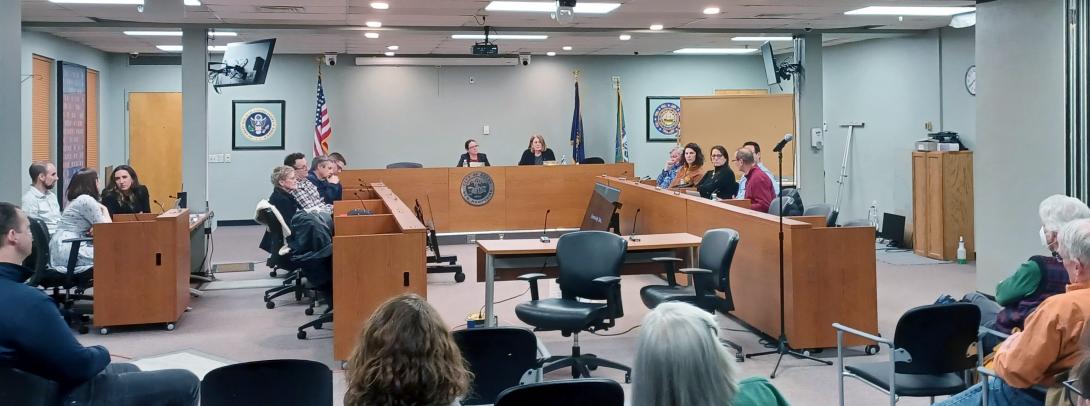Tonight I attended Keene's "joint meeting", where the five members of the City' Council's Planning Licenses and Development (PLD) Committee meet in a workshop format with the members of the Planning Board.
At issue was the proposal to reduce the minimum lot size in the rural part of Keene from five acres to two acres. There was a pretty good turnout, as these things go, both in favor of and opposed to the ordinance.
The presentation by the city staff considered, among other things, the tax implications of what this change would mean. There is a concern that rezoning will lead to higher taxes in the rural area as properties become more valuable due to the possibility of being able to subdivide.
I'm of two minds about this. The first is that I recognize that paying taxes sucks and in some cases can create a hardship that leads to negative consequences. On the other hand, by having properties artificially undervalued as a result of zoning restrictions, it sure seems to me like rural property owners in Keene are getting a sweet little tax subsidy, which has to be made up by those who live closer to the urban center. Like me, for example.
But it seems the problem is actually quite limited in scope. Most of the parcels in the area will not be affected by valuation changes - either because the lots are too small to further subdivide or because they are already set up with another sweet tax subsidy are big enough to be in current use. It ends up that significantly less than 200 parcels would be affected by valuation increases, out of about 10,000 total parcels in the city.
A typical parcel that would be affected might go up in value from $65K to $85K, resulting in an additional tax bill of about $620 a year. Which is unfortunate for the property owner to have to pay that but is also a $20,000 windfall when they eventually cash out.
Several members of the Monadnock Interfaith Project were there to speak in favor of the ordinance, in light of our area's dire need for more housing opportunities. MIP will always come out when issues of housing are up for discussion.
Those speaking against the ordinance were rural property owners not wishing to have new development in their bucolic neighborhoods. These places are indeed lovely, and I can't blame anybody for not wanting them to change.
For my own part, I remain conflicted over the conservation implications of all this. You simply can't expand human activity into natural areas without doing serious damage to the ecosystems that exist out there. Moreover, building car-dependent, single-family homes way outside of town isn't exactly a development pattern for green living.
It's the Planning Board's job to consider whether the proposed ordinance is consistent with our city's Master Plan, and the members present all voted that it was. Pamela Russell Slack, attending her last joint meeting before stepping down as Chair of the Planning Board, noted that the Master Plan was starting to show its age and needs to be updated soon.
It was then voted to move the ordinance on to the next step, which will be a public hearing, followed by further consideration by the PLD Committee prior to being sent to the full Council for approval. There will be further opportunity for public comment at both the public hearing and the PLD Committee meeting.

